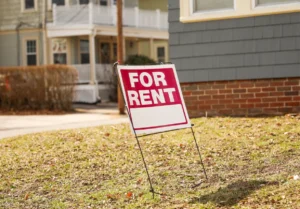Policy Targeting Tenant Protections Affects Financing Applications Beginning in March

Freddie Mac, Fannie Mae Adopt New Lease Requirements for Multifamily Loans
Housing finance giants Freddie Mac and Fannie Mae plan to put into practice new minimum lease standards designed to protect tenants at multifamily properties that seek to receive financing.
The revised policy includes rules for apartment leases that would guarantee a five-day grace period for rent payments and fee incursions, a 30-day notice for rent increases, and a 30-day notice for lease expirations.
“These lease standards seek to extend the reach of common baseline tenant protections,” Kevin Palmer, head of multifamily for Freddie Mac, said in a statement. “Although many borrowers already exceed these minimum standards, all will be required to meet the standards to obtain [government-sponsored enterprise] financing in the future.”
The new policy will apply to new loans applied for after Feb. 28, 2025, and will not affect any loan applications signed before that date.
Excluded from the policy are manufactured housing developments, which already fall under a separate tenant protection policy, loans for cooperative housing corporations, leases less than two months, and loans originated by third parties. Adjustments to the lease expiration requirement will be made for senior housing providers that may be unable to provide the necessary level of care for certain tenants.
Borrowers must begin implementing the new policies within six months of loan closing, and within 24 months all residential leases must contain the standards, according to government-sponsored enterprises Freddie Mac and Fannie Mae. Properties will be monitored for compliance through standard inspection and reporting processes.
Penalty Established
Properties found to be out of compliance will have 30 days to become compliant or face a penalty equivalent to 20 basis points of the original loan amount. Continuing noncompliance will result in default and jeopardize future transactions with Freddie Mac and Fannie Mae.
The standards were initially proposed by the Federal Housing Finance Agency in July prior to their adoption by Freddie Mac and Fannie Mae. They were developed through a collaboration between the three entities that examined the pre-existing landscape of state landlord-tenant laws and engaged with various stakeholders to identify
These “new multifamily tenant protections mark an important milestone by increasing transparency and improving communication between housing providers and tenants,” Sand L Thompson, director of the FHFA, said in a statement. “FHFA and [Freddie Mac and Fannie Mae] will continue to engage with stakeholders to support both tenants and housing providers as these policies take effect.”
Fannie Mae financed roughly 482,000 multifamily rental units in 2023, a significant majority of which were affordable to low-to-moderate income households of the area median income. Likewise, Freddie Mac has traditionally focused on affordable housing, with more than 90% of the rental units it funds affordable to families with incomes earning up to 120% of the area median income.
Freddie Mac and Fannie Mae were created by Congress to provide housing finance liquidity. During the Great Recession, the federal government bailed them out with billions of taxpayer dollars.
The two enterprises have remained under the FHFA’s conservatorship to oversee their operations.
Source: CoStar News
Get a Free Multifamily Loan Quote
Access Non-Recourse, 10+ Year Fixed, 30-Year Amortization













 Accessibility
Accessibility